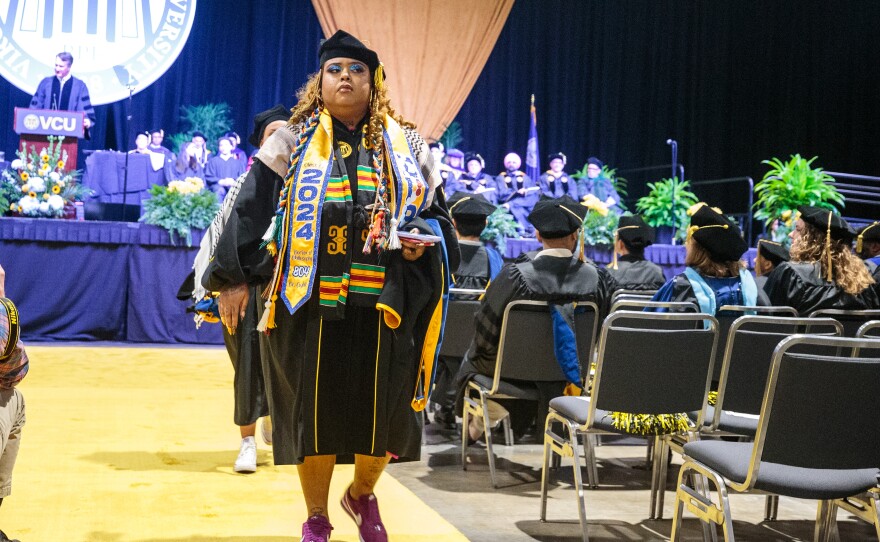
Photo Credit: VCU
In a remarkable display of dissent, dozens of graduates from Virginia Commonwealth University (VCU) staged a walkout during Governor Glenn Youngkin’s commencement speech. The decision to leave the ceremony was fueled, in part, by the governor’s remarks concerning campus protests.
The Incident unfolded during VCU’s graduation event, which typically marks a celebratory milestone for students. However, as Governor Youngkin took the podium to address the graduating class, tensions escalated. His comments on campus protests struck a nerve with many attendees, prompting them to exit the venue In protest.
While the exact content of Youngkin’s speech remains undisclosed, it is evident that his words resonated deeply with some graduates. Campus protests have been a contentious issue across universities nationwide, and VCU students were not willing to remain passive listeners when confronted with a perspective they found objectionable.
The walkout serves as a powerful reminder of the importance of free expression and the right to dissent within academic settings. Universities have long been spaces where diverse opinions collide, and students often engage in passionate discussions about social, political, and cultural issues. Governor Youngkin’s speech inadvertently became a flashpoint for these broader debates.
As the graduates filed out of the ceremony, their actions spoke volumes. They were not merely rejecting a single speaker; they were asserting their autonomy and standing up for their beliefs. The walkout symbolized a collective refusal to accept rhetoric that clashed with their values and experiences.
In the aftermath of the walkout, discussions have intensified about the role of public figures in university events. While commencement addresses are traditionally seen as apolitical, recent years have witnessed a shift. Graduates are increasingly scrutinizing speakers’ stances on critical issues, demanding transparency, and holding them accountable.
Governor Youngkin’s office has yet to release an official statement regarding the incident. However, the walkout has drawn attention to the delicate balance between free speech and respectful discourse. Universities must navigate this terrain carefully, ensuring that diverse perspectives are heard while maintaining an atmosphere of civility.
For the VCU graduates who participated in the walkout, their actions were a testament to their commitment to social justice and their willingness to challenge authority. As they stepped outside the ceremony hall, they carried with them the weight of their convictions, leaving an indelible mark on their alma mater’s history.
In the days following the event, social media buzzed with discussions about the walkout. Some praised the graduates’ courage, while others criticized their decision. Regardless of individual opinions, one thing remains clear: the walkout at VCU will be remembered as a defining moment when graduates chose to exercise their right to dissent, even on a day meant for celebration.
















